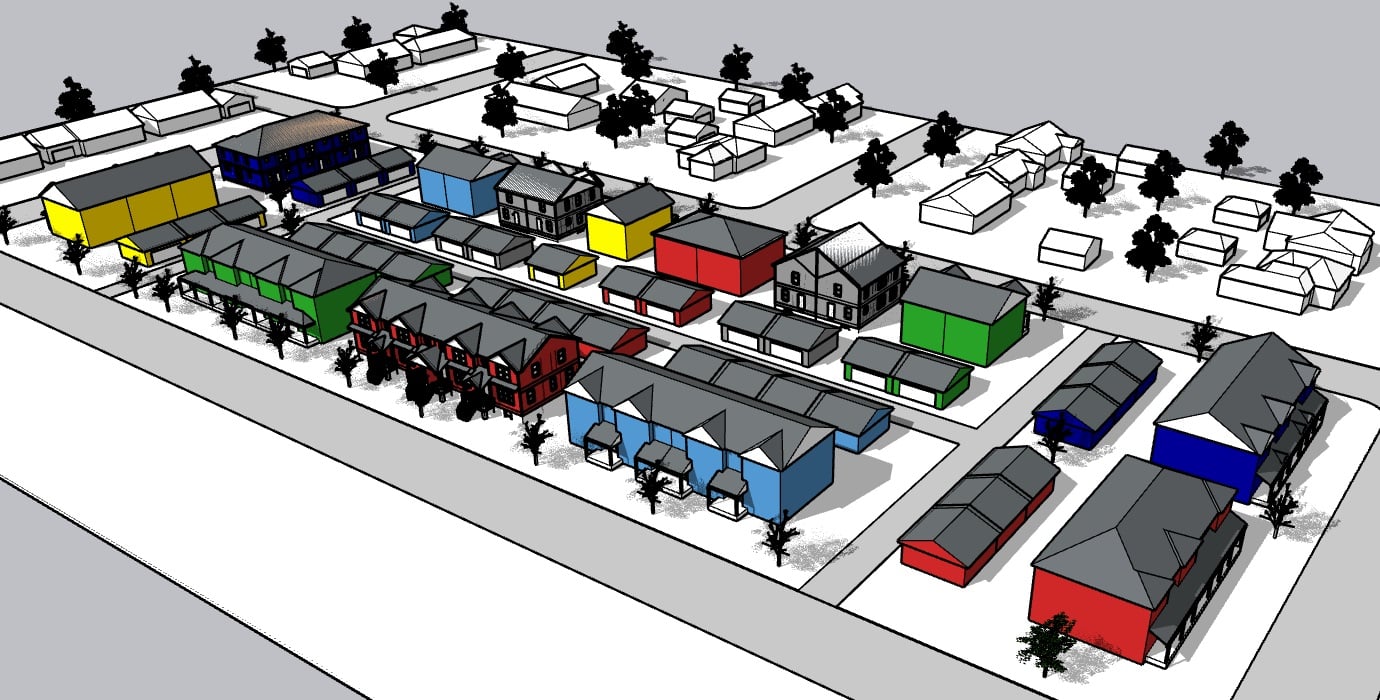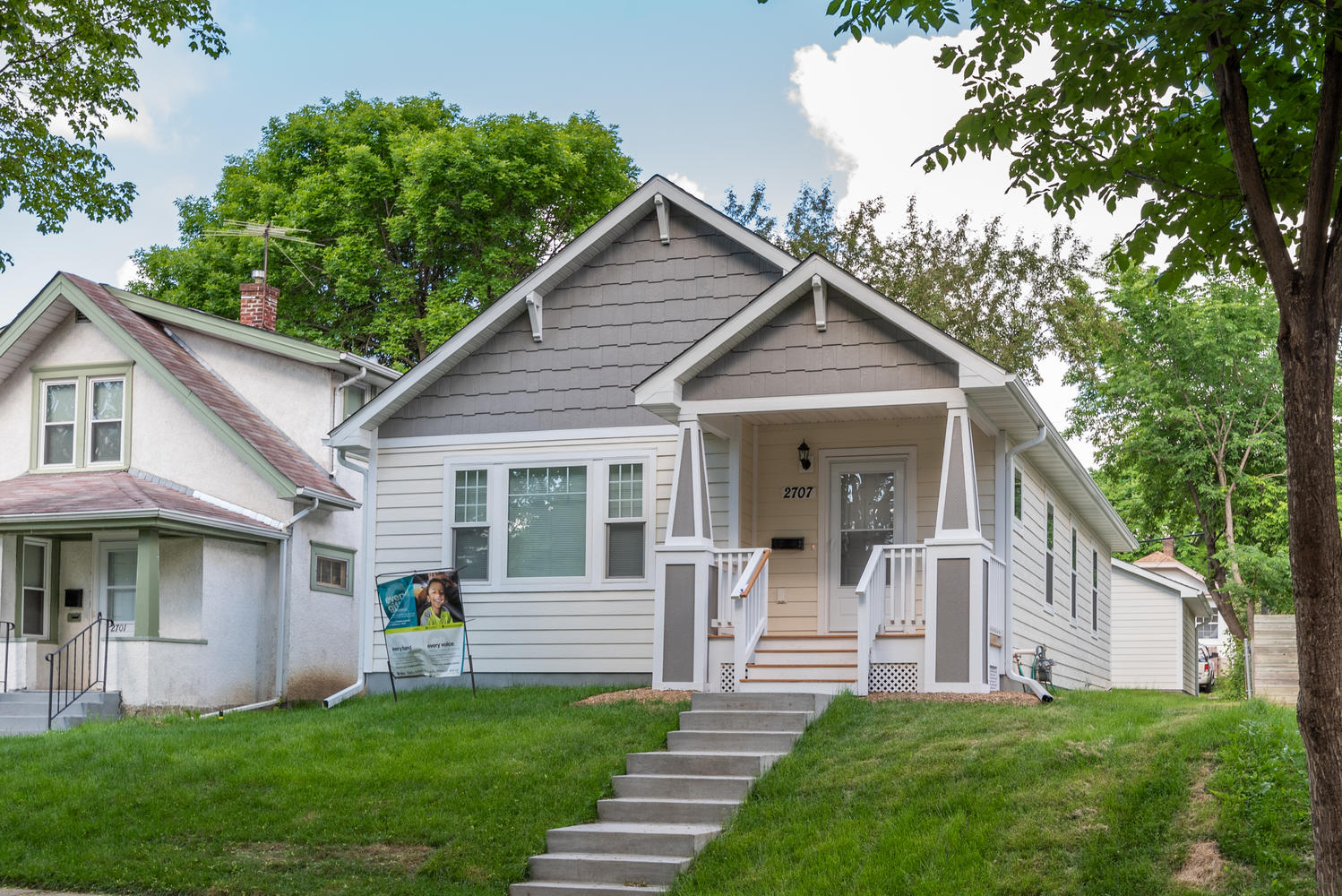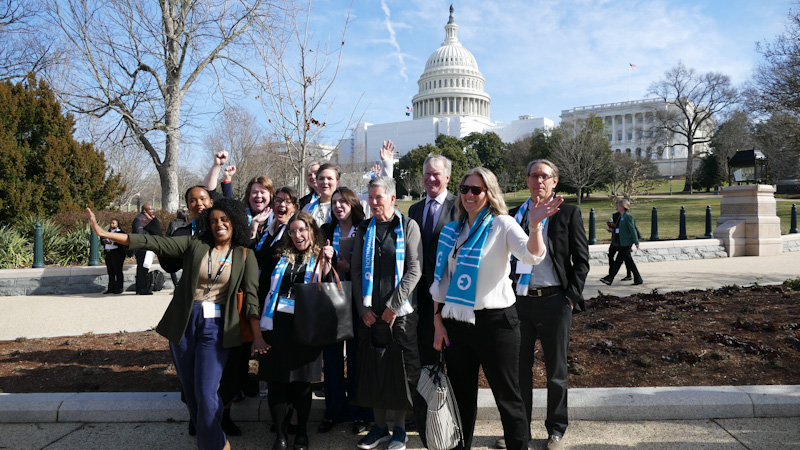2024 City Budgets: Affordable Housing as a Local Priority
December marks the end of the year and the passage of city budgets. Earlier this month, the Cities of Minneapolis and St. Paul reached the end of...

The World of Tax Increment Financing—A Local Government Tool for Affordable Housing
At Twin Cities Habitat for Humanity, we’re always seeking new and diverse ways to fund the ever-growing cost of homebuilding. One of the new opportunities we’re exploring is called Tax Increment Financing (TIF)—and it could be the key to big homeownership developments on the horizon.
TIF is a tool used by local governments to incentivize development in their communities by providing up-front resources for beneficial projects such as housing, businesses, or public infrastructure. With TIF, developers receive funding at the start of a project that will then be supplemented through additional property taxes over multiple years. This is possible due to the value added to the property by the developers’ projects, which will raise the assessed market value. The extra funding boost at the beginning can make all the difference in getting a project off the ground. And as Twin Cities Habitat seeks larger, more innovative developments like The Heights, TIF could come in handy.
However, this is only possible for projects that are sufficiently large enough and will increase in value enough to repay the funding. Common examples of projects would include developing on previously unused land or replacing old buildings with a new and improved larger building.
Municipalities calculate the funds and repayment timeline by comparing the original tax amount of the project ‘district’ and the estimated tax amount after improvements. They also need to ensure that the usual uses of property taxes towards public services will be maintained while repaying the original funding. The amount given to developers is also dependent on the expected increase in value and length of repayment. As municipalities have looked to further invest in extensive development opportunities, TIF is an essential tool for municipalities to develop their communities.
Affordable Housing TIF (AHTIF), as the name suggests, supports the development of affordable housing. Projects chosen for financing must meet income requirements for the buyers or renters and must also potentially meet long-term affordability standards. Usage of these funds is limited to housing projects and can cover a spectrum of housing types, including homeownership.
AHTIF can be especially valuable in projects that are located in low-income communities to preserve affordable housing options for the residents. When properly utilized in addition to other tools, AHTIF can mitigate the displacement of residents at risk of being priced out of their communities.
Twin Cities Habitat for Humanity works with every level of government to develop new tools for affordable homeownership throughout the region. Local governments play a huge role in encouraging new development of affordable housing and the preservation of affordable housing stock within our communities. Historically, Twin Cities Habitat has not utilized TIF because it’s not applicable to single-family homes and small developments. But as we seek opportunities for larger developments, TIF will provide a new tool to create affordable homeownership opportunities on a large scale.
While Twin Cities Habitat continues to advocate for local-level resources, we invite you to join our Government Affairs team in advocacy opportunities in your own community. Sign up now to receive periodic emails and the latest news on our housing advocacy work with ways you can take action!
Your gift unlocks bright futures! Donate now to create, preserve, and promote affordable homeownership in the Twin Cities.

December marks the end of the year and the passage of city budgets. Earlier this month, the Cities of Minneapolis and St. Paul reached the end of...

The efforts to invest in affordable housing are supported throughout many of our government institutions, and our county governments are no...

Every year, Twin Cities Habitat for Humanity joins affiliates from across the country to advocate for affordable homeownership. This year marked the...